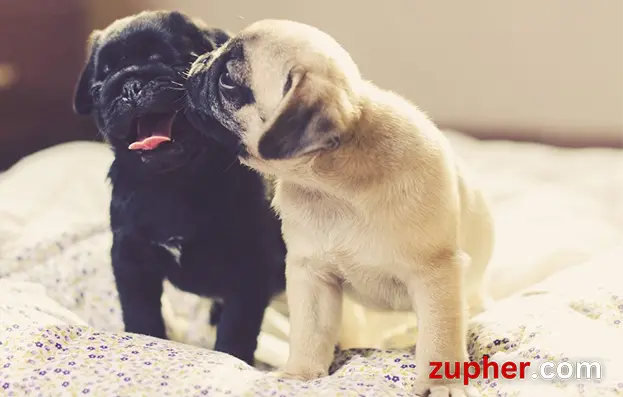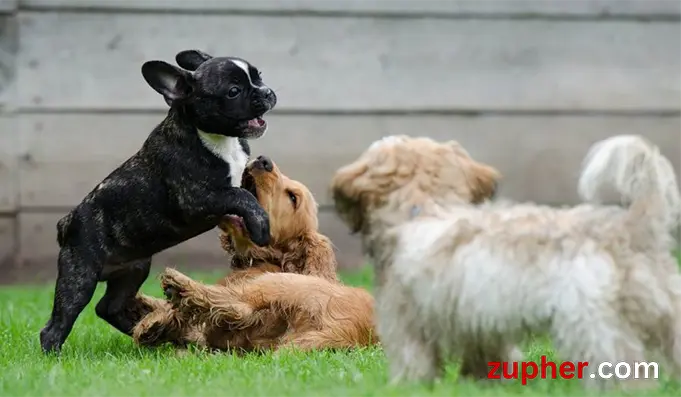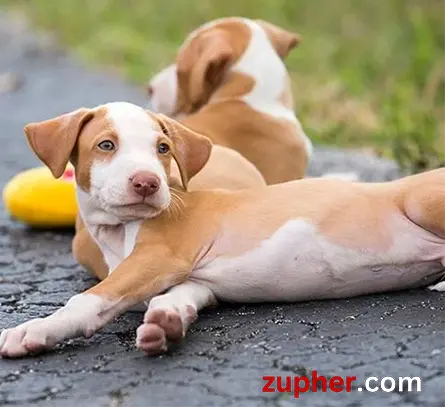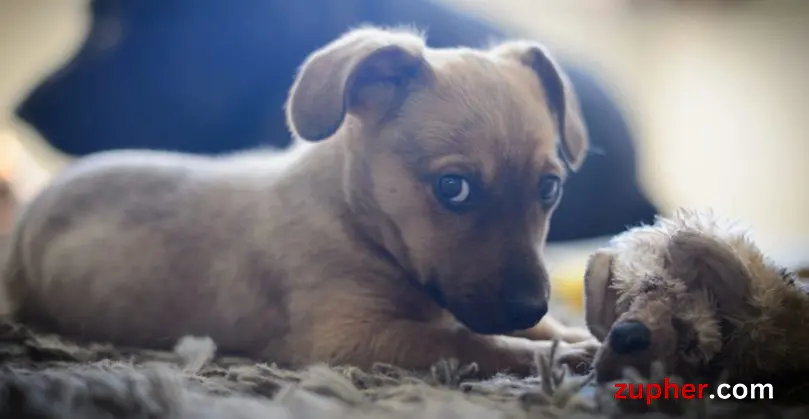What Are the Best Ways to Socialize My Puppy?

I. Introduction
A. Definition of puppy socialization
Puppy socialization means helping your furry friend get used to different people, places, and experiences. It’s like introducing them to the world!
B. Importance of socialization for puppies
Socialization is super important for puppies! It helps them grow up to be friendly, confident, and well-behaved dogs. Without it, they might be scared or nervous about new things.
C. Purpose of the article: to explore effective methods for socializing puppies
In this article, we’ll look at the best ways to help your puppy become a social butterfly. We’ll explore different methods to make sure your puppy feels comfortable and happy in any situation. Let’s dive in!

II. Understanding Puppy Socialization
A. Critical developmental periods in a puppy’s life
Puppies go through important times when they learn a lot about the world. These periods are like windows of opportunity for them to explore and get used to new things. If they miss out during these times, it can be harder for them to learn later.
B. The role of socialization in preventing behavioral issues
Socialization plays a big role in helping puppies grow up to be well-behaved dogs. When they’re exposed to different people, animals, and situations early on, they learn to feel comfortable and confident. This helps prevent them from becoming fearful or aggressive later.
C. Benefits of well-socialized puppies for both the dog and the owner
Having a well-socialized puppy is awesome for both the pup and their human! For the dog, it means they’re more likely to be friendly, happy, and less stressed in different situations. And for the owner, it makes life easier because their dog is easier to handle and can join in on more adventures. Plus, it strengthens the bond between them!

III. Early Experiences Matter: Early Socialization Techniques
A. Introducing the puppy to various environments
Start by taking your puppy to different places like parks, sidewalks, and even the vet’s office. Let them explore and sniff around so they get used to new sights, sounds, and smells. This helps them feel relaxed in different places as they grow up.
B. Exposing the puppy to different people and animals
Introduce your puppy to lots of different people of all ages and sizes. Encourage them to interact with friendly dogs too. This helps them learn that meeting new friends is fun and nothing to be scared of. It also teaches them how to behave around different types of people and animals.
C. Positive reinforcement methods during early socialization
Use treats, praise, and toys to reward your puppy when they act calmly and friendly in new situations. This helps them associate new experiences with good things and encourages them to be brave and outgoing. Remember, positive reinforcement is all about making learning fun and enjoyable for your puppy!

IV. Puppy Classes and Group Socialization
A. Benefits of enrolling puppies in organized puppy classes
Puppy classes are like school for dogs! They help your puppy learn important skills like how to listen to commands and play nicely with others. Plus, they’re a great way for you to bond with your furry friend while learning together.
B. Importance of supervised interactions with other puppies
In puppy classes, your puppy gets to hang out with other pups their age. This is super important because it teaches them how to communicate and play with other dogs in a safe and controlled environment. Plus, it’s just plain fun for them!
C. Finding reputable puppy classes and trainers
When looking for puppy classes, it’s important to find ones run by experienced trainers who use positive reinforcement techniques. Ask around for recommendations from other dog owners or check online reviews. Make sure the classes focus on socialization and are a good fit for your puppy’s age and energy level.

V. Controlled Exposure to Stimuli
A. Gradual exposure to common stimuli such as noises, surfaces, and objects
When socializing your puppy, slowly introduce them to things they might encounter in everyday life. This includes different sounds like doorbells or vacuum cleaners, various surfaces like grass or tile floors, and objects such as umbrellas or bicycles. By doing this gradually, you help your puppy feel more comfortable and confident in different situations.
B. Techniques for desensitization and counterconditioning
Desensitization means helping your puppy get used to something they’re afraid of by exposing them to it in a safe and controlled way. Counterconditioning is about changing your puppy’s negative feelings about something into positive ones. For example, if your puppy is scared of thunderstorms, you can play recordings of thunder at a low volume while giving them treats or toys to create a positive association.
C. Creating positive associations with potentially frightening stimuli
To help your puppy overcome their fears, associate scary things with good experiences. For instance, if your puppy is scared of strangers, have people they don’t know give them treats or play with them. This shows your puppy that meeting new people is exciting and rewarding, not something to be afraid of. Remember, patience and consistency are key when using these techniques!
VI. Incorporating Socialization into Daily Routine
A. The role of daily walks and outings in socialization
Daily walks and outings are like mini adventures for your puppy! They provide opportunities for your furry friend to meet new people, and dogs, and experience different environments. It’s like taking them on a fun field trip every day!
B. Opportunities for socialization during playtime and training sessions
Playtime and training sessions are perfect times to sneak in some socialization practice. Invite friends and their dogs over for playdates, or take your puppy to a dog-friendly park. During training, incorporate commands like “sit” and “stay” while introducing them to new people or situations. This helps your puppy learn good manners while making new friends.
C. Making socialization a consistent and enjoyable part of the puppy’s routine
Consistency is key when it comes to socializing your puppy. Make sure to include socialization activities in their daily routine, such as walks, outings, playtime, and training sessions. Keep things fun and positive, and your puppy will look forward to their daily adventures. By making socialization a regular part of their routine, you’ll help your puppy grow into a confident and well-adjusted adult dog.
VII. Monitoring Progress and Adjusting Strategies
A. Recognizing signs of stress or discomfort in the puppy
Keep an eye out for signs that your puppy might be feeling stressed or uncomfortable. These can include things like trembling, hiding, or excessive barking. If you notice any of these signs, it’s important to take a step back and give your puppy some space to calm down.
B. Being flexible and adapting socialization strategies based on the puppy’s reactions
Not every puppy is the same, so it’s essential to be flexible with your socialization approach. If you notice that your puppy is scared of certain situations or objects, don’t force them to confront their fears. Instead, try to find alternative ways to gradually introduce them to new experiences at their own pace.
C. Seeking guidance from a professional trainer or behaviorist when needed
If you’re unsure about how to handle your puppy’s socialization or if you’re encountering specific challenges, don’t hesitate to seek help from a professional trainer or behaviorist. They have the knowledge and experience to assess your puppy’s needs and provide guidance on the best strategies to help them overcome any obstacles. Don’t forget, it’s perfectly fine to seek assistance when you require it!
VIII. Challenges and Considerations
A. Addressing the challenges of socializing puppies during pandemics or in urban environments
During pandemics or in busy cities, it can be tricky to socialize puppies. Limited access to places and people might make it harder to expose them to new experiences. However, you can still get creative by organizing virtual playdates with other dog owners or exploring quieter areas for walks.
B. Dealing with individual differences in temperament and personality
Every puppy is unique, in their temperament and personality. Some may be naturally outgoing and eager to meet new friends, while others might be more shy or cautious. It’s important to tailor your socialization approach to your puppy’s individual needs and comfort level. Be patient and understanding as you help them navigate the world.
C. Understanding the limitations of socialization and managing expectations
While socialization is crucial for puppies, it’s essential to understand that it has its limitations. Not every puppy will become a social butterfly, and that’s okay! Some dogs may always be a bit reserved or cautious in certain situations, and that’s just part of who they are. Manage your expectations and focus on helping your puppy become the best version of themselves, rather than trying to force them to fit a specific mold.
IX. Conclusion
A. Recap of the importance of puppy socialization
Remember, socializing your puppy is super important for their development. It helps them grow up to be confident, friendly, and well-behaved dogs. By exposing them to different people, places, and experiences early on, you’re setting them up for success in the future.
B. Encouragement for owners to prioritize socialization efforts
As a puppy owner, it’s essential to prioritize socialization efforts. Make time for regular walks, outings, and playdates to help your puppy get used to the world around them. It may take some effort, but the rewards of having a well-socialized dog are worth it!
C. Emphasizing the long-term benefits of a well-socialized puppy
Finally, keep in mind the long-term benefits of having a well-socialized puppy. Not only will they be happier and more confident in various situations, but they’ll also be easier to handle and more enjoyable to be around. Plus, a strong bond between you and your furry friend will grow as you navigate the world together. So, keep up the socialization efforts, and enjoy watching your puppy blossom into a fantastic companion!
People also ask
What’s the most effective method to socialize a puppy?
Introduce them to various environments, people, and animals gradually and positively.
At what age is it ideal to socialize a puppy?
Between 3 and 14 weeks old is ideal, but socialization efforts can continue throughout their life.
How much time does it take to socialize a puppy?
Socialization is an ongoing process, but initial efforts can take a few months.
How can I get my dog to socialize better?
Employ positive reinforcement, introduce them to fresh experiences, and consult professionals when necessary.
Is it too late to socialize my puppy?
It’s never too late, but earlier socialization is generally easier.
Is it too late to socialize my dog?
It’s never too late, but it might require more patience and effort.



